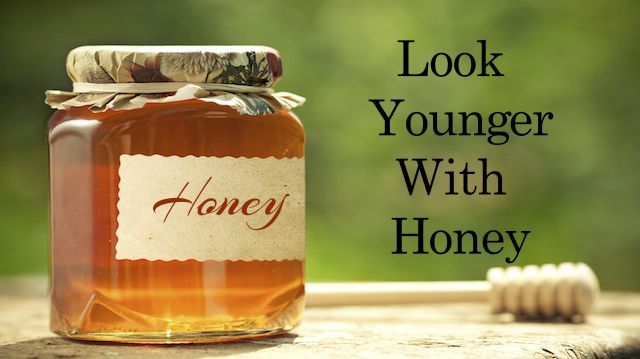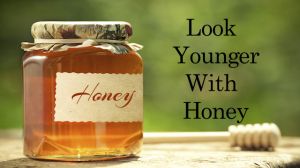
“Mirror, mirror on the wall, who is the fairest of them all?”
You may have heard that smoking and too much sun exposure will age you faster than a dried prune? While this is true, there is something else that will also rapidly accelerate aging, something you may be overlooking.
SUGAR… the dreaded five-letter word can do more than leave you with a muffin top, it can drain years from your life. Sugar is your enemy, hands down. Besides being eight times more addictive than cocaine, sugar also has the following effects:
- Suppresses the immune system.
- Elevates blood sugar.
- Disrupts mineral balance.
- Disrupts digestion.
- Causes tooth decay.
- Contributes to obesity.
- Can cause heart disease.
- Can cause food allergies.
- Can cause depression.
- Increases the risk of certain cancers.
So, how does sugar make you look old?
During a natural process known as “glycation,” sugar in the blood attaches to proteins to create harmful molecules called advanced glycation end products (AGEs). The more sugar you consume, the more AGEs you develop.
These nasty compounds damage the surrounding proteins including collagen and elastin that help to keep the skin firm and elastic. Once damaged, collagen and elastin become very dry and brittle, which leads to sagging and wrinkles. This impact can be seen starting at around age 35 and can move along quite quickly, according to a study published in the British Journal of Dermatology.
AGEs all disrupt the body’s natural antioxidant enzyme system that helps protect our skin from sun damage. A study published in the journal Clinics in Dermatology found that when sugar is elevated in the tissues, the damage caused by ultraviolet light hitting the skin is accelerated.
You see, there is no good to be found in refined sugar at all — nothing that will provide useful energy for long-term healing or wellness. Sugar is a highly addictive substance that wreaks havoc on the body and should be avoided at all costs.
So… what’s so great about honey?
Raw honey has been used for centuries to treat countless ailments. Hippocrates himself wrote of the “liquid gold” and its medicinal effects.
Humans have been enamored with honey for thousands of years. In fact, an 8,000-year-old rock drawing found in Spain depicts a honey-seeker robbing a wild hive. Honey has been found buried with Pharaohs in Egypt, and after thousands of years it was still edible.
Honey was the most popular ancient Egyptian healing remedy, and was mentioned over 500 times in 900 remedies.
Ancient Egyptians, Assyrians, Chinese, Romans and Greeks used honey for treating wounds and to heal conditions of the gut. An actual prescription for wound salve dating between 2600 and 2200 BC called for a mixture of grease, honey, and lint or fiber. Even ancient physicians recognized the therapeutic value of this natural gift.
What Cleopatra has taught us
When it comes to beauty, much can be learned from Cleopatra, the Egyptian queen who many regard as one of the most beautiful women in history. Luckily, her beauty secrets are documented, making it possible for women everywhere to test them and create that same seductive beauty that made her a legend.
Much like her milk and honey bath, Cleopatra used a combination of cream and honey to nourish and rehydrate her skin. Try this yourself by mixing 2 tablespoons of organic cream with 1 tablespoon of honey. Apply it to your face and, after letting it sit for about 10 minutes, rinse it off with warm water.
Science says…
There are mountains of scientific research and clinical studies related to the medicinal properties of honey. A simple search on PubMed using the search term “honey” yields over 7,000 scientific papers dating back to 1884.
Honey is truly a healing gift from nature, and is rich in the following medicinal properties:
Hygroscopic property: In its natural state, honey has a very low water content, but it absorbs moisture when exposed to air. This hygroscopic property makes honey highly beneficial to dry skin by allowing it to better retain moisture. It also helps to speed up wound healing time.
Antibacterial property: One especially vital component in honey, glucose oxidase, is an enzyme that produces hydrogen peroxide. Research indicates that this is one of the main reasons why honey seems to have such powerful antibacterial and wound-healing capabilities. The production of hydrogen peroxide is just one of the remarkable ways that honey helps to kill bacteria and heal wounds.
Antioxidant property: Although darker honey generally contains more antioxidant power than light-colored honey, both are still a rich source of valuable antioxidants. Antioxidants go to work against free radicals and encourage new tissue growth. This, in turn, helps expedite healing of damaged tissue and also helps skin appear younger and more radiant.
What is the difference between honey and refined table sugar?
They’re both sweet, right? So don’t they have the same effect on my body? This is a common question… many people don’t understand that there are significant differences in the way the body responds to honey versus table sugar. Although both honey and sugar contain both glucose and fructose, there are chemical differences in the way that these sugars are linked together.
When table sugar is extracted from sugarcane (or sugar beets) and then processed, the proteins, nitrogen elements, and enzymes found in the natural sugarcane are destroyed.
In contrast, honey is a natural sweetener that is only minimally processed, and is loaded with antioxidant and antimicrobial properties.
Table sugar (sucrose) is comprised of two sugar molecules (fructose and glucose) bound together. Before table sugar can be used for energy, we must break it down using an enzyme that will separate these molecules. When bees produce honey, they supply the enzyme needed so we don’t have to use our own energy to break the bonds. What a wonderful gift this is!
Table sugar, unlike honey, is void of any vitamins or minerals. This is why it is often referred to as a source of “empty calories.” In fact, the calories from table sugar are even worse than empty… they are dangerous. When we consume table sugar in the amounts commonly consumed today, we see clear evidence of an increased risk of diabetes and cardiovascular disease.
Gram for gram, honey is sweeter than sugar. This allows us to use less honey than table sugar to achieve the same level of sweetness. Although one tablespoon of sugar contains 46 calories and one tablespoon of honey has 64, you can use far less honey than sugar due to its innate and intense sweetness.
 Wean yourself off the fake stuff
Wean yourself off the fake stuff
Quit all sugar, you say, how can I possibly do that? If you truly have a sugar fixation, this is not an easy thing to do. However, it is necessary if you want to prevent a myriad of health conditions in the future. Here are five tips to help you end your sordid love affair with sugar:
Understand your sugar triggers—We all have them, they are what make you go for the sugar. This could be stress, hunger, boredom, etc. Keep a food diary and make a note of when you crave sugar.
Eat nutrient dense food—Fill your body with whole foods, rich in healthy fats and organic fruits and vegetables. A well-nourished body craves less sugar than one that is nutrient deprived.
Start your day with a savory breakfast—A hearty breakfast that contains healthy saturated fat will help keep the sugar cravings at bay. Choose an omelet or a bowl of oatmeal with real butter or cream rather than dry cereal or a bagel (whole grain foods are basically complex sugars).
Go on a sugar fast—Commit to at least five days without any sugar at all. Read your labels carefully; many foods are loaded with sugar. Although this will not be easy, your body will thank you.
Do not use artificial sweeteners—Many people have the wrong impression that artificial sweeteners will help them end their craving for sugar. In fact, these make it harder to quit and only encourage you to eat sugar-laden foods. If you need to sweeten something, use coconut crystals, raw stevia or raw honey (in moderation).
If you must have a sweet treat, try our tasty sugar-free soda alternatives. They will keep you satisfied without compromising your health.
Quit sugar today and replace it with a moderate amount of raw honey and you will soon notice an amazing difference in how your skin looks and feels.
Susan is the Content Director at The Alternative Daily, a Certified Health Coach, Certified Metabolic Typing Advisor and Master Gardener. With an extensive knowledge of whole foods and wellness, Susan enjoys educating others on how to live healthy and sustainable lives. She presently lives off grid in the middle of the New Mexican high desert with her three children and numerous animals.
—Susan Patterson
Sources:
http://www.health.harvard.edu/blog/eating-too-much-added-sugar-increases-the-risk-of-dying-with-heart-disease-201402067021
http://www.honey.com/honey-industry/honey-and-bee-research/nutrition-research-information
http://www.ncbi.nlm.nih.gov/pubmed/19155427
http://www.ncbi.nlm.nih.gov/pubmed/23450557
http://www.honey.com/honey-industry/honey-and-bee-research
http://www.honeyo.com/honeyhealing.shtml
Al-Jabri AA. Honey, milk and antibiotics. Afr J Biotechnol.2005;4:1580–1587

